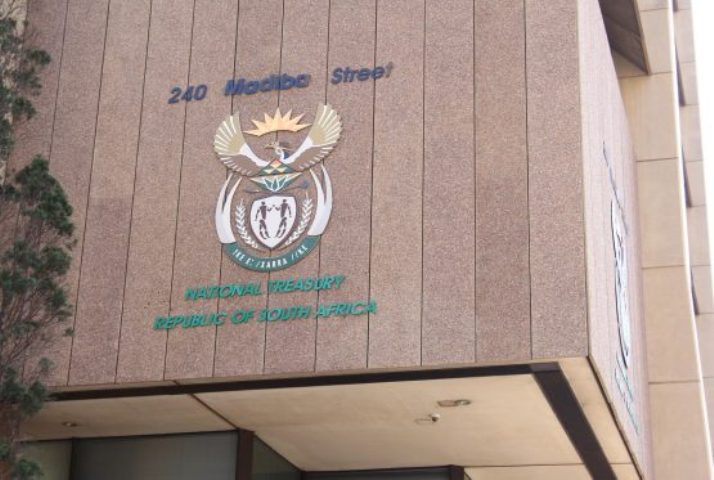Municipal Debt Surges to R416 Billion Amid Rising Creditors and Grant Underuse
The Treasury reported that R10.8 billion (2.6%) of the total debt was written off as bad debt, reflecting municipalities' growing concern over recoverability.

- Country:
- South Africa
South African municipalities are facing deepening financial stress, as the latest National Treasury report for the third quarter of the 2024/25 financial year reveals a significant escalation in consumer debt, sluggish revenue collection, rising unpaid creditors, and underutilised conditional grants.
According to the report—covering financial and conditional grant data for 257 municipalities—total consumer debt owed to municipalities rose to R416.1 billion by 31 March 2025, a sharp increase from R347.6 billion reported in the same period in the 2023/24 financial year. The National Treasury attributes most of this ballooning debt to households, which account for R299.5 billion or 72% of the total, underscoring the growing burden on the public sector from residents' inability to settle utility and service bills.
Debt Write-Offs and Government Arrears
The Treasury reported that R10.8 billion (2.6%) of the total debt was written off as bad debt, reflecting municipalities' growing concern over recoverability. Meanwhile, government debt to municipalities increased to R24.9 billion (6%), up from R21 billion in the prior year.
On the creditors’ side, municipalities themselves are increasingly falling behind on payments. As of March 2025, total outstanding municipal creditors reached R131.8 billion, a steep increase from R106.7 billion recorded in the third quarter of 2023/24. Alarmingly, 84.8% (R111.8 billion) of this debt has been outstanding for more than 90 days, suggesting liquidity and cash flow constraints.
Provincial Concerns: Free State, Mpumalanga Among Worst Affected
Several provinces recorded exceptionally high long-term creditor backlogs:
-
Free State: 94.4% of creditors outstanding for over 90 days
-
Mpumalanga: 93.9%
-
Northern Cape: 93.8%
-
North West: 84.4%
This prolonged indebtedness to service providers could jeopardise essential service delivery, with Treasury warning that it signals underlying liquidity pressures and poor financial management.
Revenue Collection vs. Budget Projections
The Treasury’s analysis shows a persistent mismatch between budgeted and actual revenue collection. On paper, municipalities forecasted a respectable average collection rate of 85%, but in practice, they managed to collect only 63.6% of billed and other revenue.
Performance across municipal types reveals the disparity:
-
Metropolitan municipalities (metros): Budgeted for 87.9% collection but achieved only 58.2%
-
Secondary cities: Budgeted at 86.3% but collected 69.7%
This revenue shortfall undermines the ability of municipalities to meet obligations and maintain infrastructure.
Spending Overview: Operating vs. Capital Expenditure
Municipalities spent R432.2 billion (64.9%) of their adjusted expenditure budget of R665.9 billion by the end of Q3. Revenue collection over the same period amounted to R478 billion (71.7%) of the R666.8 billion adjusted revenue budget.
A notable concern remains the low capital expenditure, with municipalities spending just R26.4 billion (33.6%) of their R78.5 billion capital budget. The operating expenditure budget fared better, with R405.8 billion (69.1%) of the R587.5 billion allocation spent.
Salaries and Wages: Budget Cuts and Actual Spend
In a rare move, municipalities trimmed their salaries and wages budget from R162.6 billion to R161.1 billion, marking a R1.5 billion (0.9%) decrease. This budget makes up 27.4% of the total adjusted operating budget, and by March 2025, R114.2 billion (70.9%) had already been spent—suggesting municipalities remain heavily reliant on labour-intensive service delivery models.
Conditional Grants: Underspending Plagues Development Goals
Municipalities were allocated R44.7 billion in direct conditional grants, of which R38.9 billion had been transferred by 31 March 2025. Yet actual spending was disappointing:
-
Municipalities reported expenditure of R19.5 billion (43.7%)
-
National Transferring Officers (NTOs) reported slightly higher spending at R25 billion (55.9%)
This reflects a decline from last year, where municipalities and NTOs reported 46.8% and 58.8% respectively during the same period. Treasury attributes the underperformance to:
-
Delayed submissions of business and implementation plans
-
Persistent Supply Chain Management (SCM) challenges
-
Adjusted budget reallocations penalising underperforming municipalities
Infrastructure Grants: Uneven Progress
The third quarter saw R23.8 billion (56.3%) of the R42.8 billion infrastructure grant budget expended. Key variances include:
-
Well-performing grants:
-
Integrated Urban Development Grant (IUDG)
-
Municipal Infrastructure Grant (MIG)
-
Regional Bulk Infrastructure Grant (RBIG)
-
Each exceeded 60% spending
-
-
Underperforming grants:
-
Municipal Disaster Recovery Grant (MDRG)
-
Water Services Infrastructure Grant (WSIG)
-
Treasury warns that this inconsistency could deepen service delivery backlogs, especially in municipalities unable to plan, procure, and implement projects effectively.
Way Forward: Call for Planning and Oversight Reforms
National Treasury has urged municipalities to:
-
Improve project planning and pipeline development
-
Resolve SCM bottlenecks
-
Enforce stricter compliance and accountability for grant utilisation
The department suggests reward mechanisms for high-performing municipalities and penalties for consistent underperformance to ensure public funds translate into tangible service delivery.
The full report is available at www.treasury.gov.za.
ALSO READ
Transformative Water Management: India and South Africa Collaborate for Sustainable Solutions
Money Smart Week South Africa 2025 Launches Drive for Financial Literacy
Cricket Titans Clash: South Africa vs. Australia in World Test Championship Final
AB de Villiers Confident in South Africa's Chance to Upset Australia in WTC Final
Cricket Titans Clash: Australia vs. South Africa at Lord's










